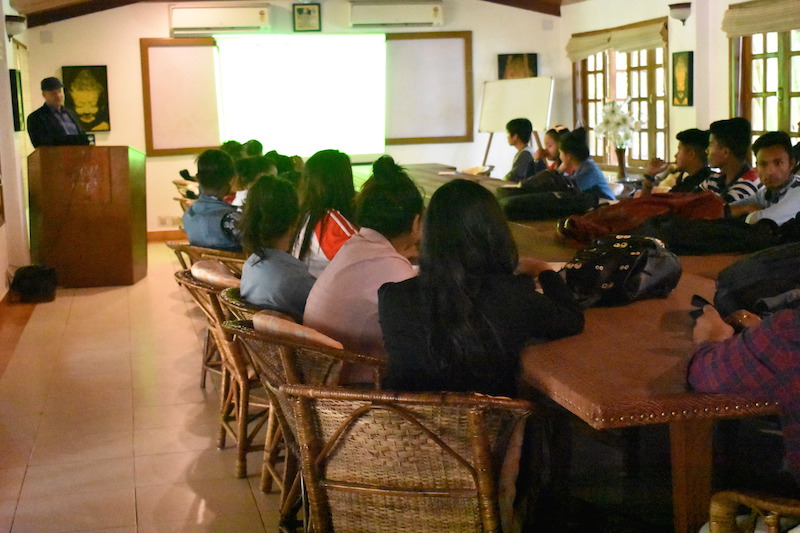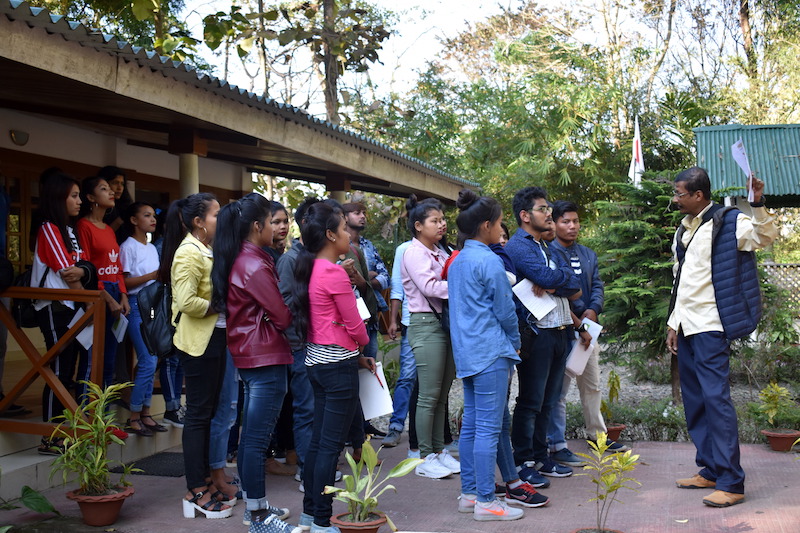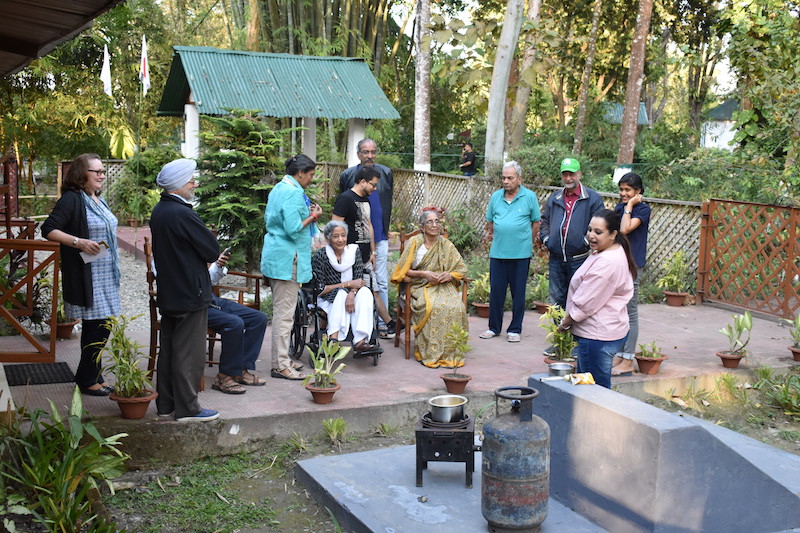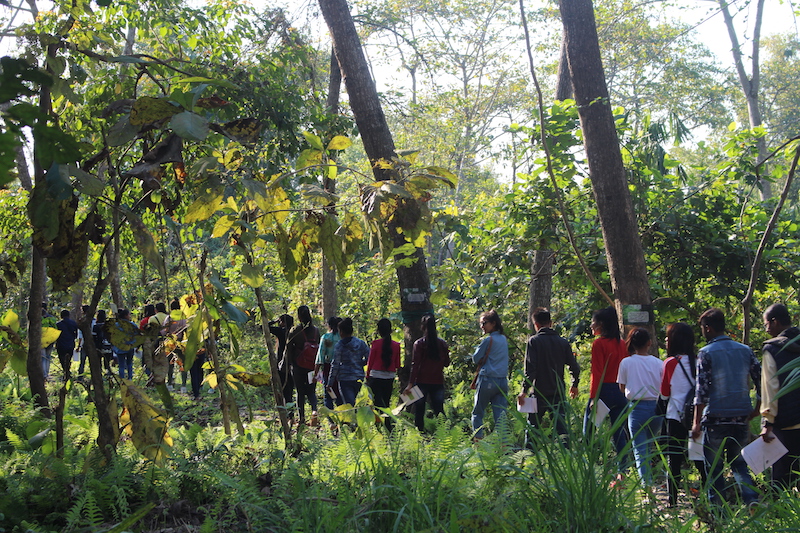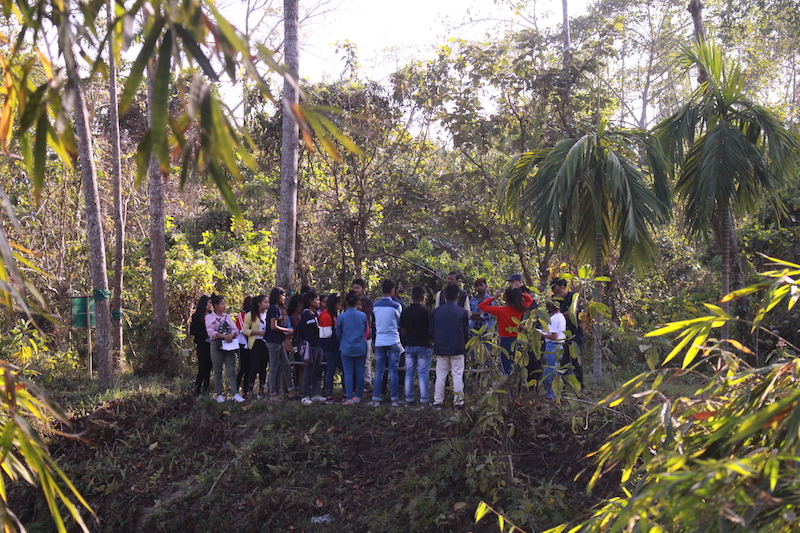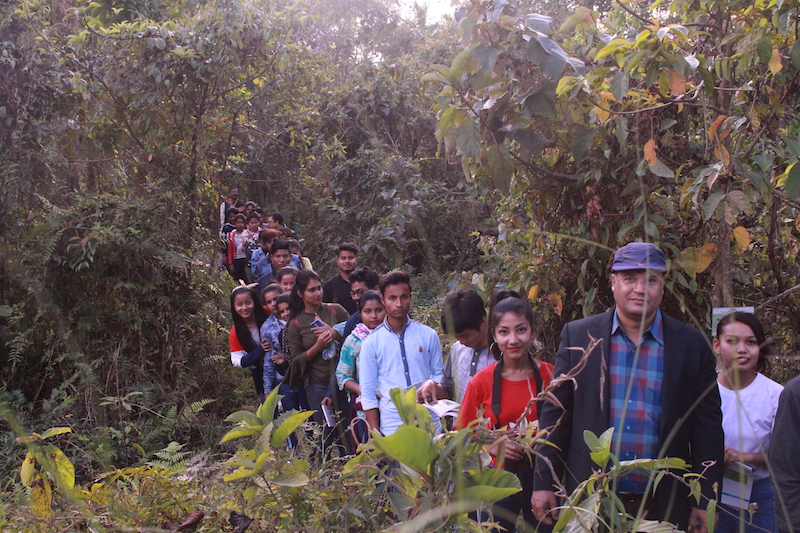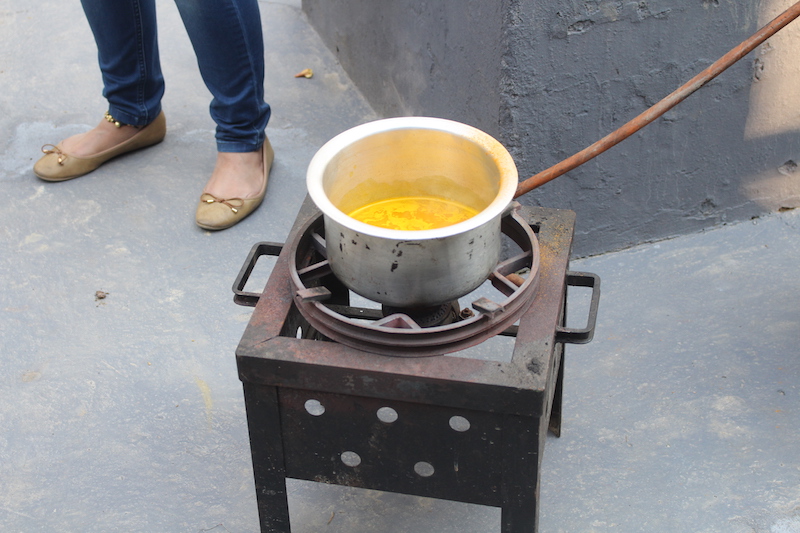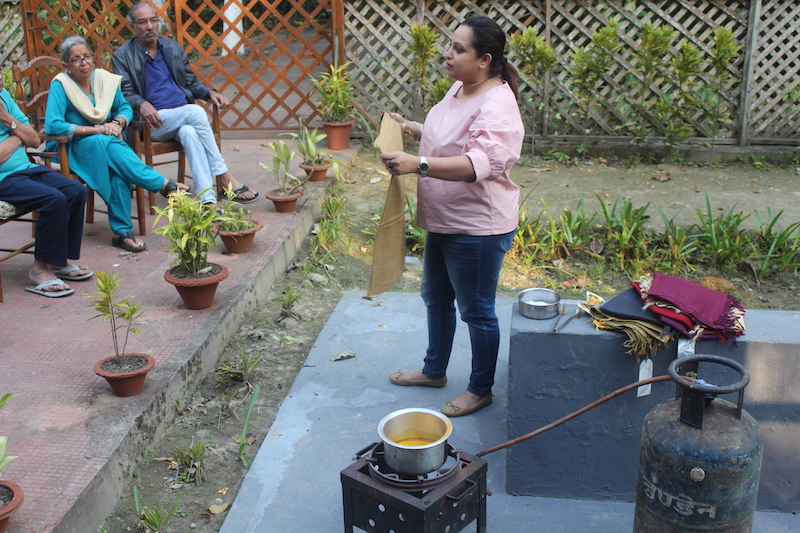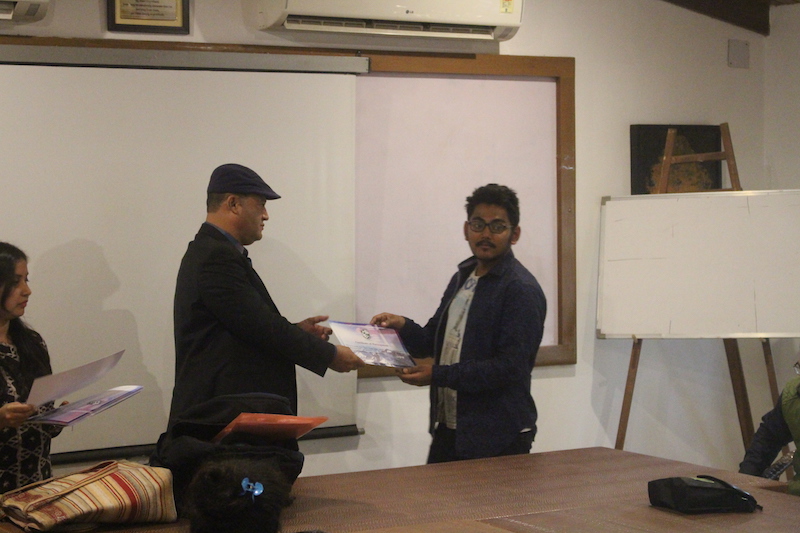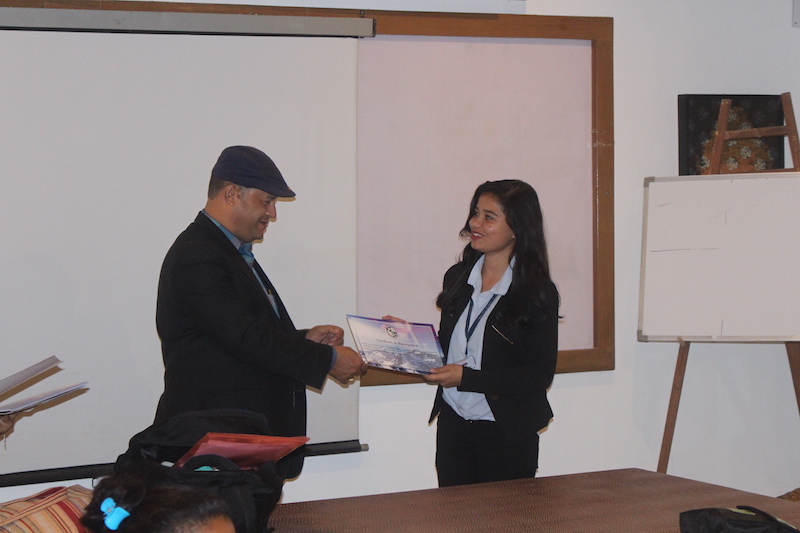Sustainable Tourism Hospitality & Guide Education One Day Naturenomics™ School Programme
Highlights of the Event:
> The objective of the programme was to help participants in acquiring knowledge and skills for business management, hospitality, and sustainability in the field of tourism and management
> 27 college students had participated in this programme in collaboration with Harupeswar Foundation, Tezpur.
About
Tourism is imperative for a country’s economic development. In certain regions of the world, tourism is the sole source of community livelihood and welfare. The north-eastern region of India is unique in terms of its geography, biodiversity, culture, food, and social structure. In order to be able to foster mindful tourism in the region, it is essential to be equipped with proper knowledge and skills for promoting and managing tourism and our natural resources. Sustainable tourism education looks at the intersection between environmentalism and the tourism industry
Since its inception, Harupeswar Foundation has emphasized on upholding traditional knowledge and practices in resource optimization. One of their key areas is promoting, as well as imparting knowledge on sustainable tourism. Recognizing the need for development and capacity building in sustainable tourism, Balipara Foundation together with Harupeswar Foundation organized a one-day ‘Sustainable Tourism Hospitality & Guide Education’ on 3rd March, 2019, which was conducted at the Naturenomics™ School, Eastern Himalayan Botanic Ark.
27 students from Tezpur College and Sotai village participated in the workshop. Participants were introduced to the programme by Darshana Borah from the Eastern Himalayan Botanic Ark and Dr. Nibedan Das from Harupeswar Foundation. Following a brief introduction, Dr. Das introduced concepts of ‘Basics of Tourism and Travel Industry’ and ‘Basics of a Tourist Guide’. Post-lunch participants were guided through nature based activities such a bird-watching and trekking and walked through the botanic trail at the Eastern Himalayan Botanic Ark. Followed by a tea break and conversations with the experts on learning the finer details of sustainable tourism activities.
On the same day, a workshop on organic dyeing was also organized at Naturenomics™ School. Conducted by Eco-designer Arita Kashyap for Shri S. Ramadorai, ex CEO and MD of Tata Consultancy Services and his family who were staying at the Eastern Himalayan Botanic Ark in residence at Wild Mahseer. She demonstrated the process of obtaining colours from the turmeric naturally and dyed a piece of cloth from the same colour. She also emphasized the importance of the knowledge of organic dye for village women and how Balipara Foundation is supporting these women for their livelihood by providing these workshops.
Impacts of the event:
> Apart from textbook basics, participants were taken through a myriad of lesser-known facts which would boost their knowledge on sustainable tourism. They also developed presentation and hospitality skills.
> The programme hopes to encourage participants for business start-ups in local tourism, which would serve as an alternate source of livelihood, as well as prepare them for other promising careers in the field.
> The objective of the programme was to help participants in acquiring knowledge and skills for business management, hospitality, and sustainability in the field of tourism and management
> 27 college students had participated in this programme in collaboration with Harupeswar Foundation, Tezpur.
About
Tourism is imperative for a country’s economic development. In certain regions of the world, tourism is the sole source of community livelihood and welfare. The north-eastern region of India is unique in terms of its geography, biodiversity, culture, food, and social structure. In order to be able to foster mindful tourism in the region, it is essential to be equipped with proper knowledge and skills for promoting and managing tourism and our natural resources. Sustainable tourism education looks at the intersection between environmentalism and the tourism industry
Since its inception, Harupeswar Foundation has emphasized on upholding traditional knowledge and practices in resource optimization. One of their key areas is promoting, as well as imparting knowledge on sustainable tourism. Recognizing the need for development and capacity building in sustainable tourism, Balipara Foundation together with Harupeswar Foundation organized a one-day ‘Sustainable Tourism Hospitality & Guide Education’ on 3rd March, 2019, which was conducted at the Naturenomics™ School, Eastern Himalayan Botanic Ark.
27 students from Tezpur College and Sotai village participated in the workshop. Participants were introduced to the programme by Darshana Borah from the Eastern Himalayan Botanic Ark and Dr. Nibedan Das from Harupeswar Foundation. Following a brief introduction, Dr. Das introduced concepts of ‘Basics of Tourism and Travel Industry’ and ‘Basics of a Tourist Guide’. Post-lunch participants were guided through nature based activities such a bird-watching and trekking and walked through the botanic trail at the Eastern Himalayan Botanic Ark. Followed by a tea break and conversations with the experts on learning the finer details of sustainable tourism activities.
On the same day, a workshop on organic dyeing was also organized at Naturenomics™ School. Conducted by Eco-designer Arita Kashyap for Shri S. Ramadorai, ex CEO and MD of Tata Consultancy Services and his family who were staying at the Eastern Himalayan Botanic Ark in residence at Wild Mahseer. She demonstrated the process of obtaining colours from the turmeric naturally and dyed a piece of cloth from the same colour. She also emphasized the importance of the knowledge of organic dye for village women and how Balipara Foundation is supporting these women for their livelihood by providing these workshops.
Impacts of the event:
> Apart from textbook basics, participants were taken through a myriad of lesser-known facts which would boost their knowledge on sustainable tourism. They also developed presentation and hospitality skills.
> The programme hopes to encourage participants for business start-ups in local tourism, which would serve as an alternate source of livelihood, as well as prepare them for other promising careers in the field.
